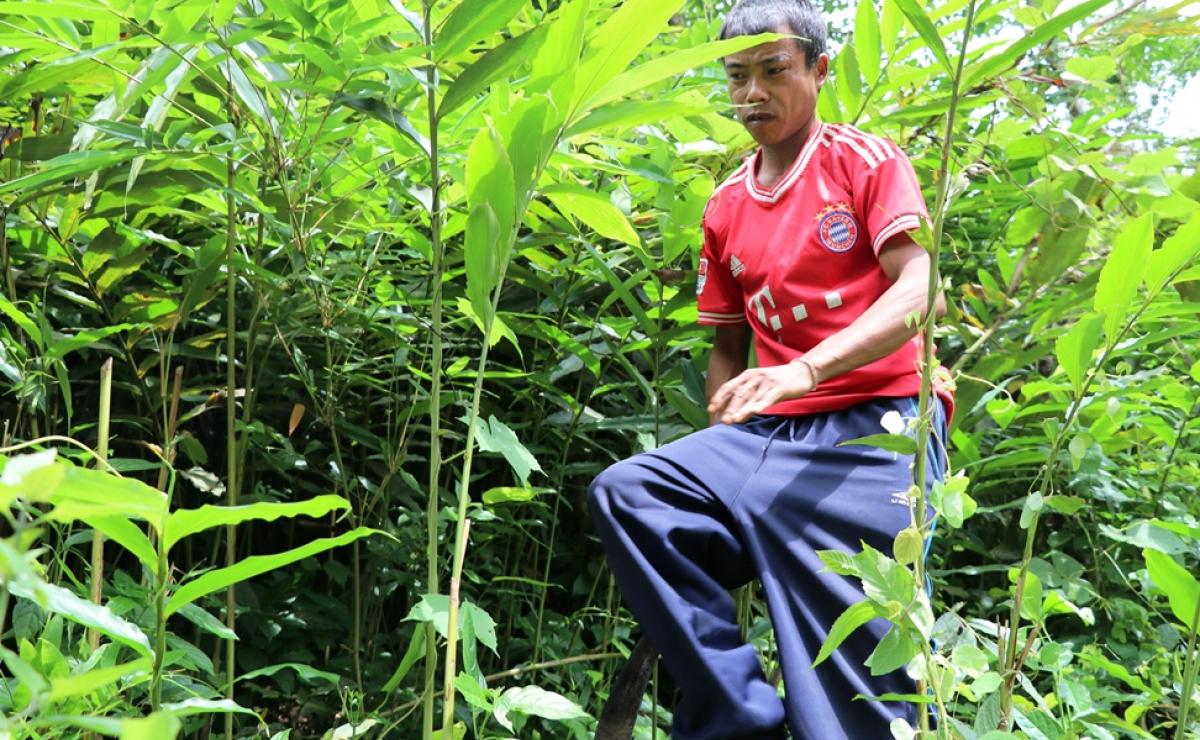Environmental Friendly Practice Brings Income

Mr Hukjerng, 46 years old, Khmu ethnic man, married with 3 children, live together in Namkieng village, one of LWF target villages in Viengphoukha district, Luangnamtha province. Hukjerng lost his front tooth from an accident in past several years; he gets hearing impairment at some level. Their main income source is from selling non timber products and laboring. Hukjerng and his wife are illiteracy, they are fortunate to have literate children whose currently are at secondary school.
Hukjerng and is family participate and benefit in wide range of LWF project activities since Rights Based empowerment Project (RBEP) has been operating in Namkieng since 2012.
Ms Khat Malaythong/LWF Community Empowerment Facilitator (CEF) told that ‘‘Hukjerng and his family are actively engage in project activities, Hukjerng once told that his children shared him their experiences and thoughts about gender equity and gender based violence they perceived from participating awareness campaigns LWF had provided’’
In late 2017, Hukjerng has been provided 500 seeds of cardamom from LWF to start making their alternative income sources in the communities. To ensure proper caring and nursing of the plants, he and his family as well as others neighbors received specific training and supervising from District Agriculture and Forestry (DAFO) and LWF.
Mr Sengprachanh Ounkeo/LWF Project Officer said that ‘‘as a result of our monitoring and supervising, we have observed that Hukjerng and his family has demonstrated planting skills very well, his cardamom plantation is progressively growth and widely spread throughout his planting areas making empty land from slashed and burnt green and recovered’’
Planted under the forest canopy, cardamom presents many advantages compared to other cash crops systems, especially its low environmental impact and its resilience to climate hazards. Consuming cardamom is relatively benefited wide range of areas including health and nutrition supplementing. Cardamom is not just cash crop products, in the other hands, planting cardamom is environmental friendly practice that promotes green growth interventions and long term income resource. Cardamom plantation is relevant and effective solution to recovery slashed and burnt cultivation areas particularly in LWF project areas where slash and burn is one of the underline causes that harms natural resources and climate change.
Hukjerng said that ‘‘cardamom planting is not difficult and not required complicated techniques and skills, significantly it is non-chemical specie, we don’t need to allocate any money for fertilizer, only our labor in taking care of them’’ he also emphasized that ‘‘I received 1 million LAK from selling my first cardamom grain last year’’
Technically, cardamom plantation takes 2 and a half or 3 years to start producing its crops, within its progressive period it is very supportive to recovery soil nutrient and recovery forest ecosystem relatively. Furthermore, it is notably seen that cardamom plantation is one of different factors to promote integrated rural development aspects either empower sustainable livelihood and use of natural resources.
Together We Can Do More.

